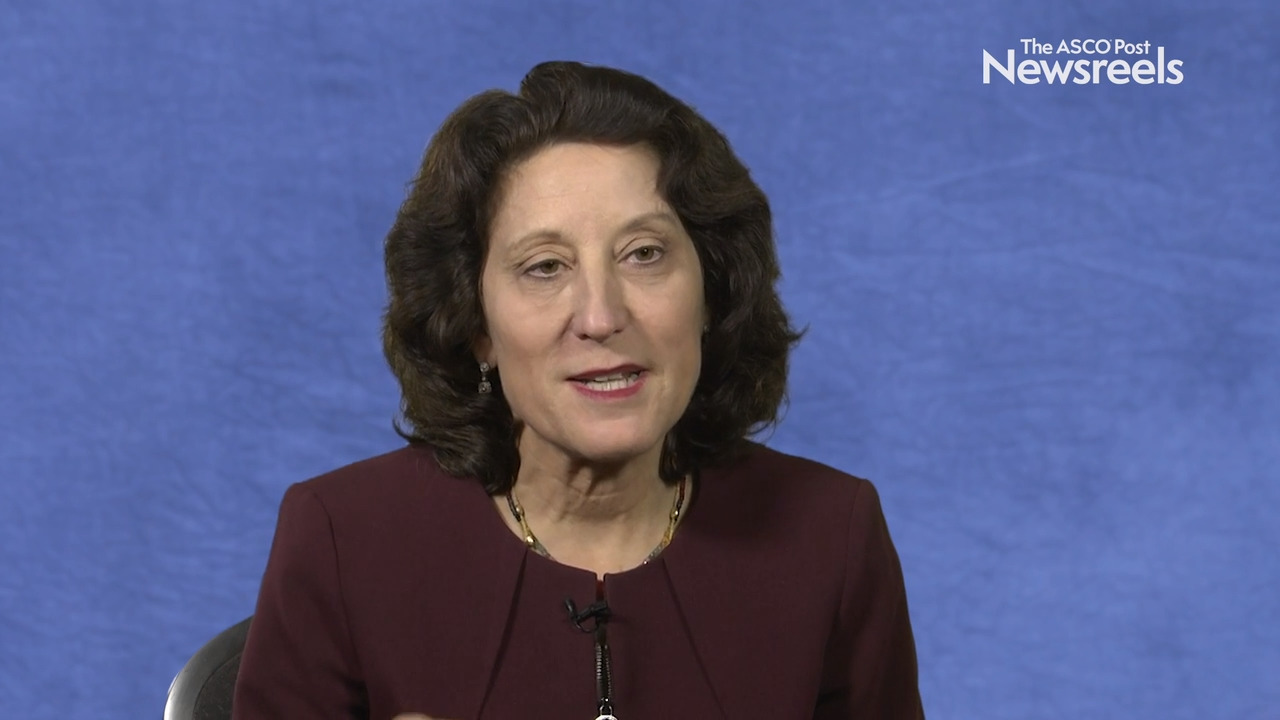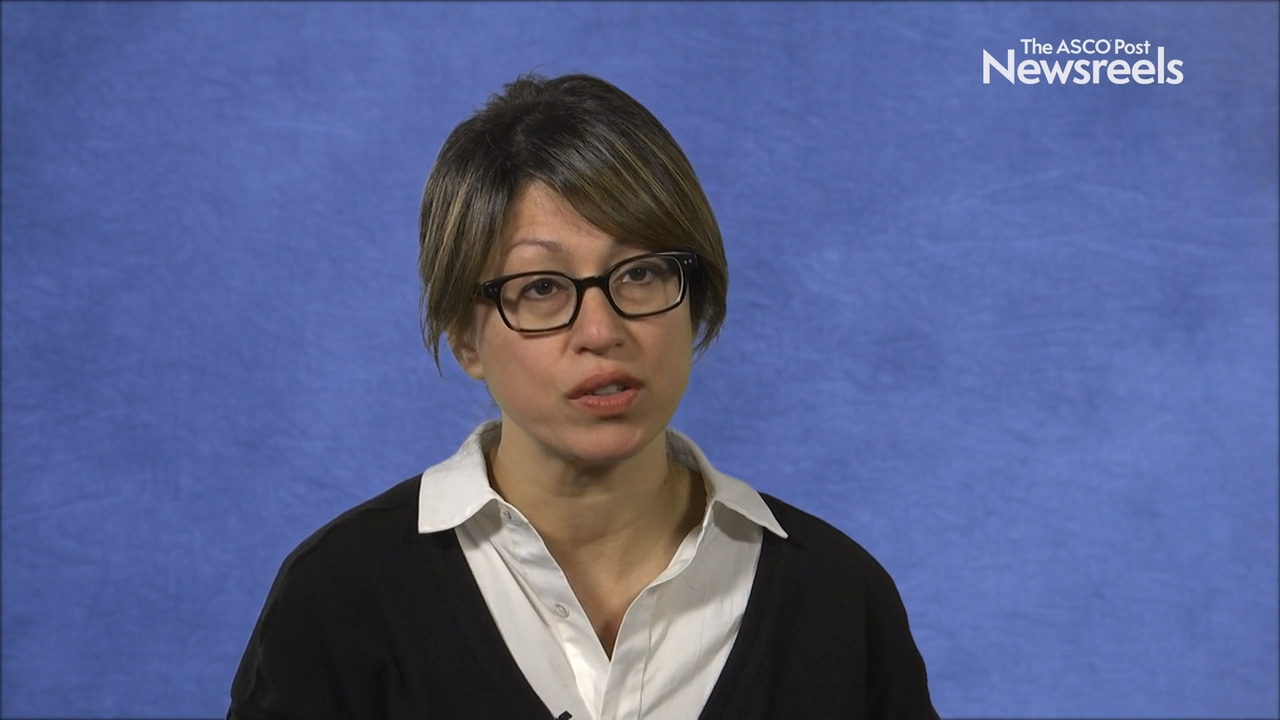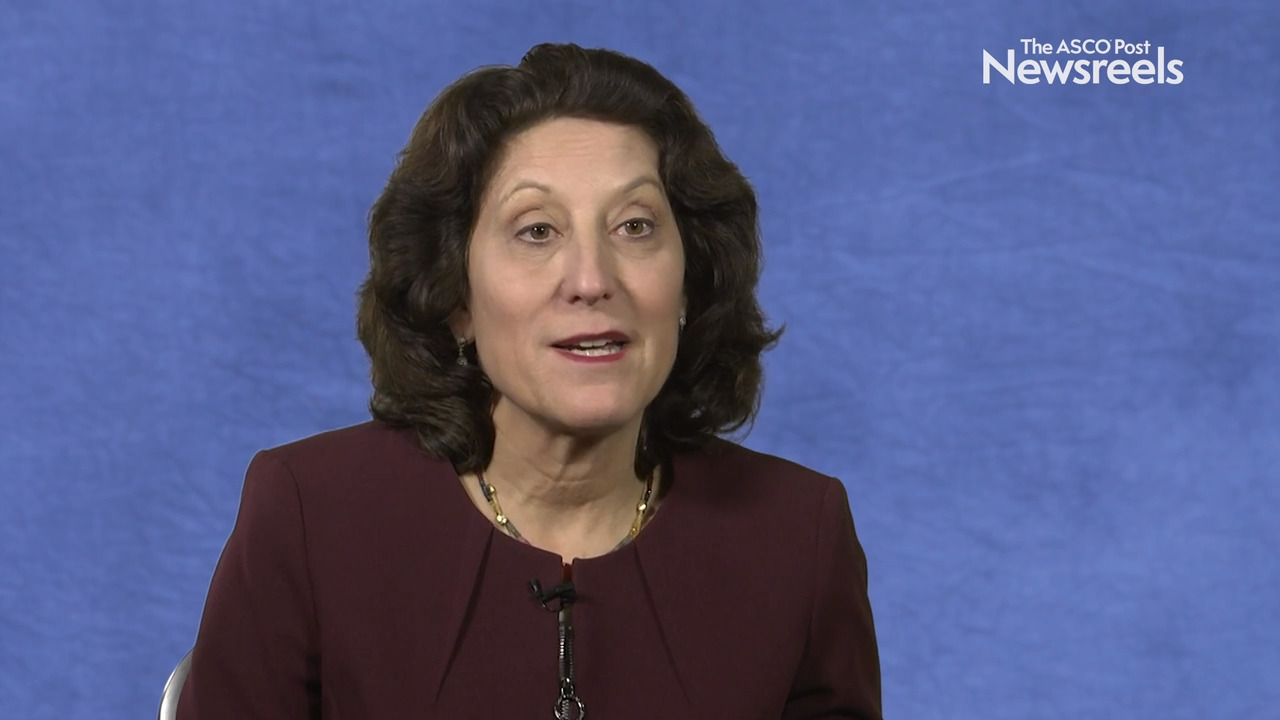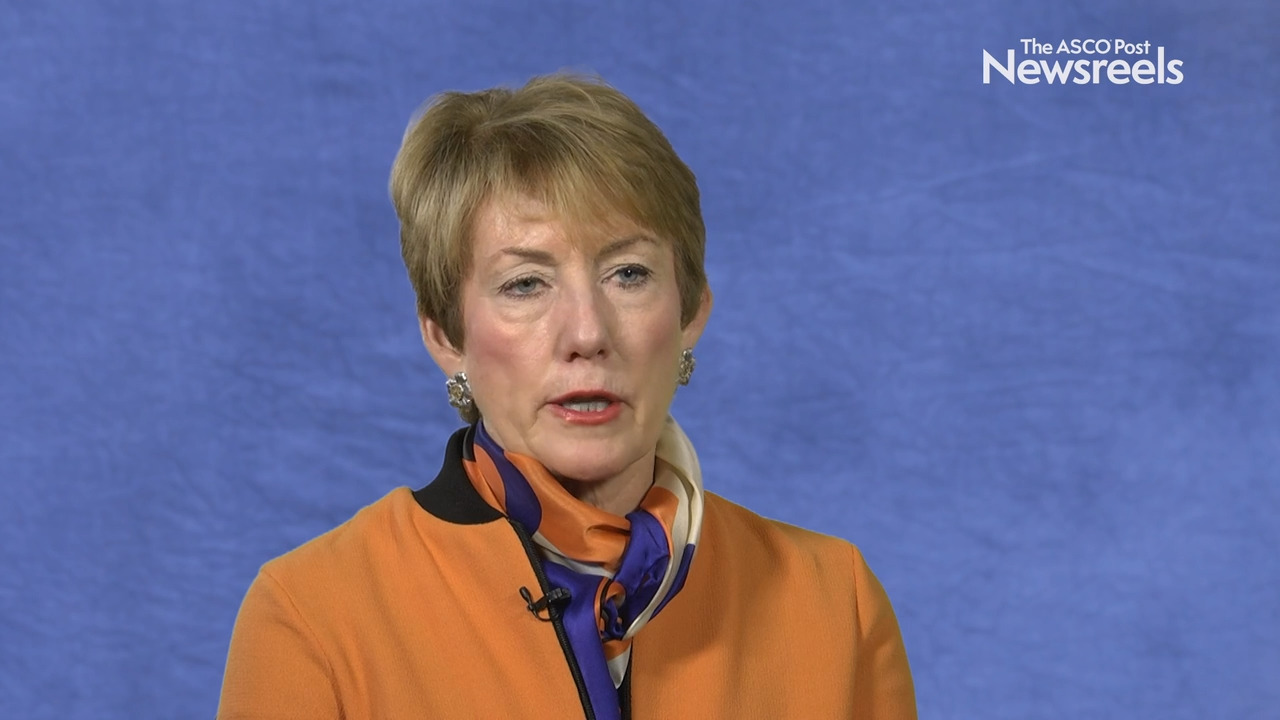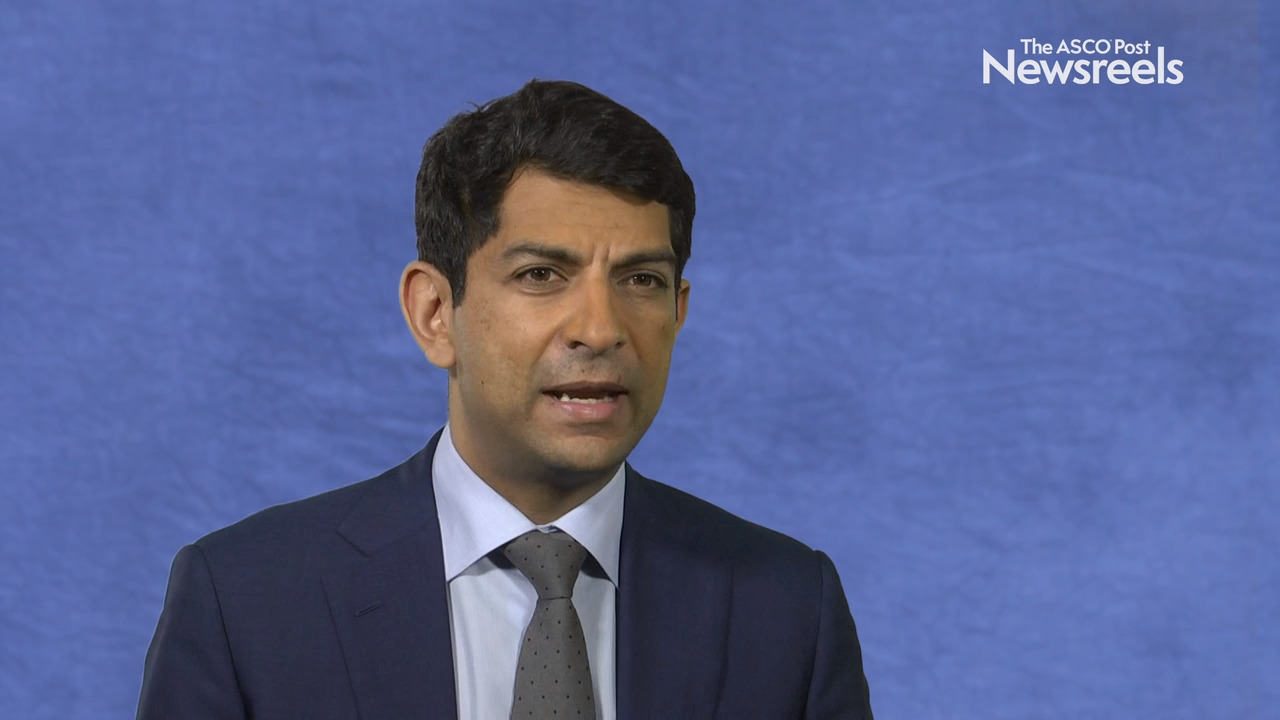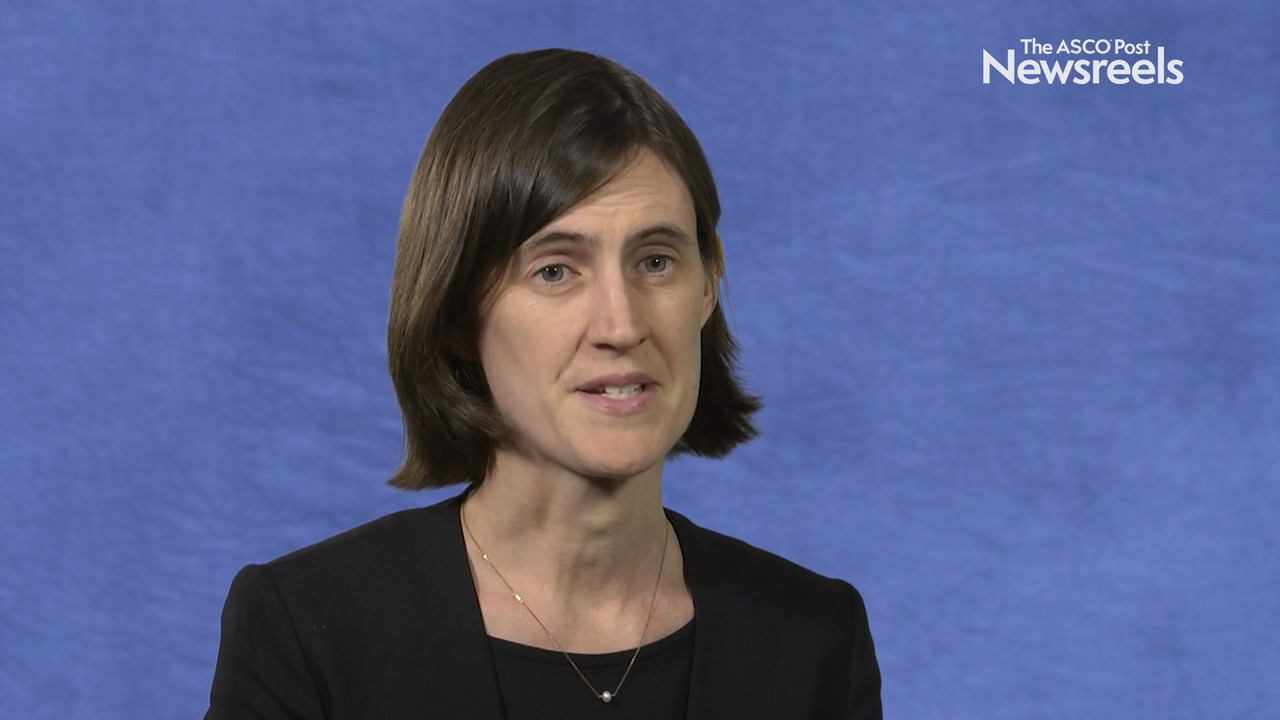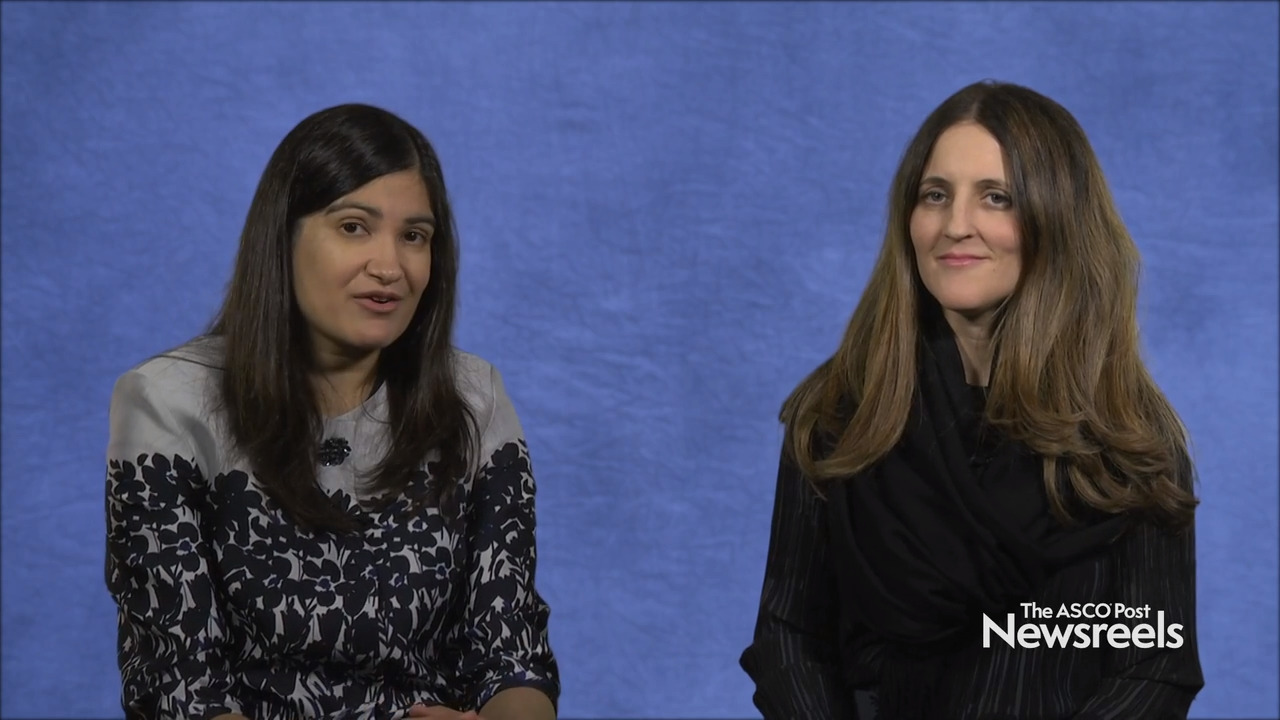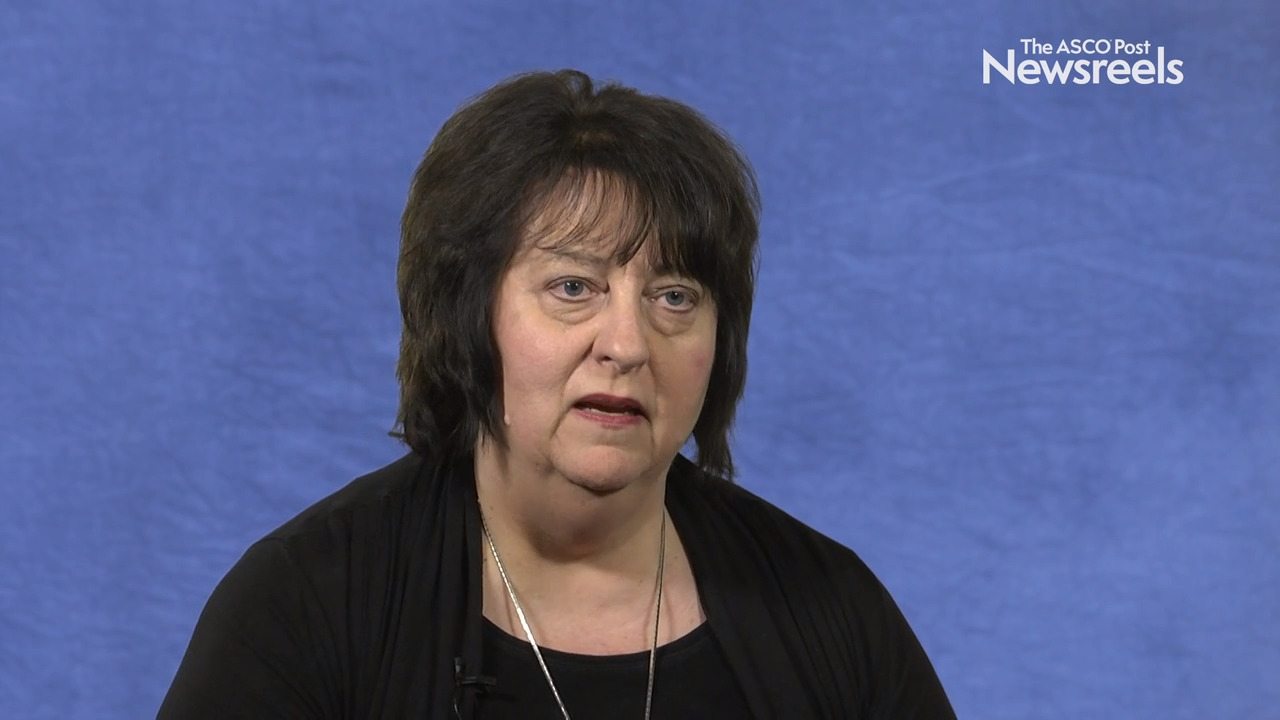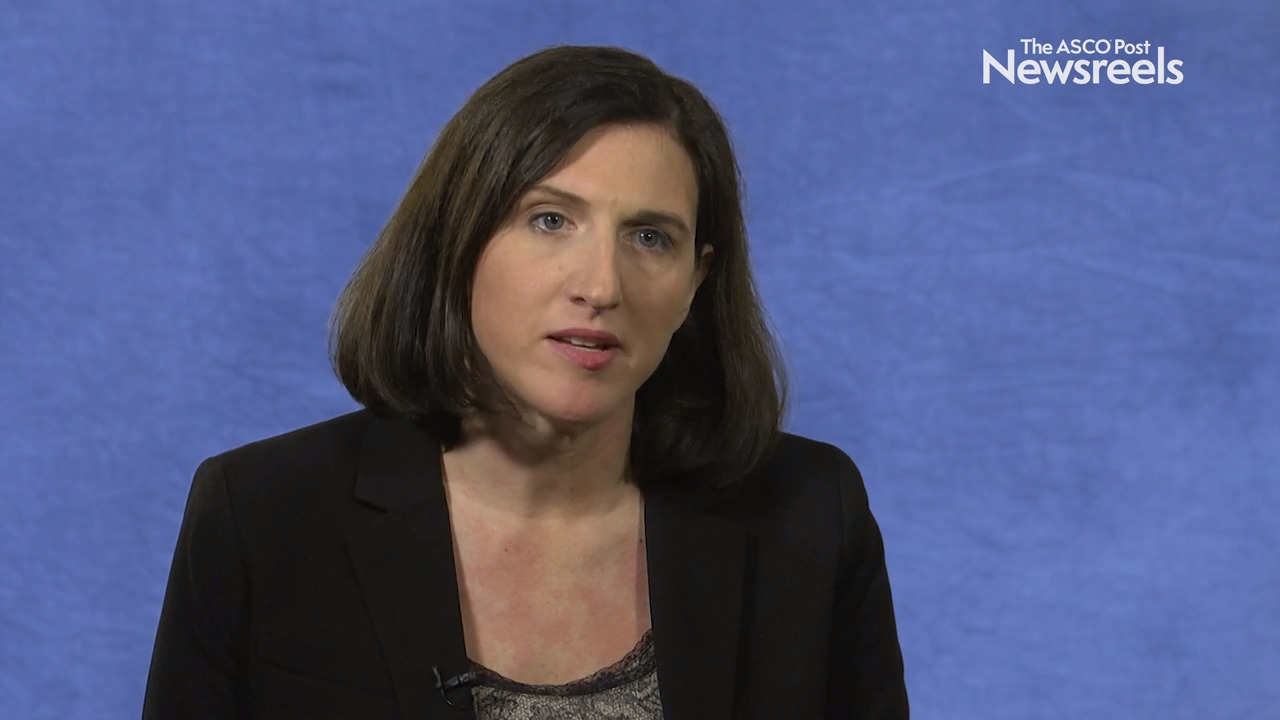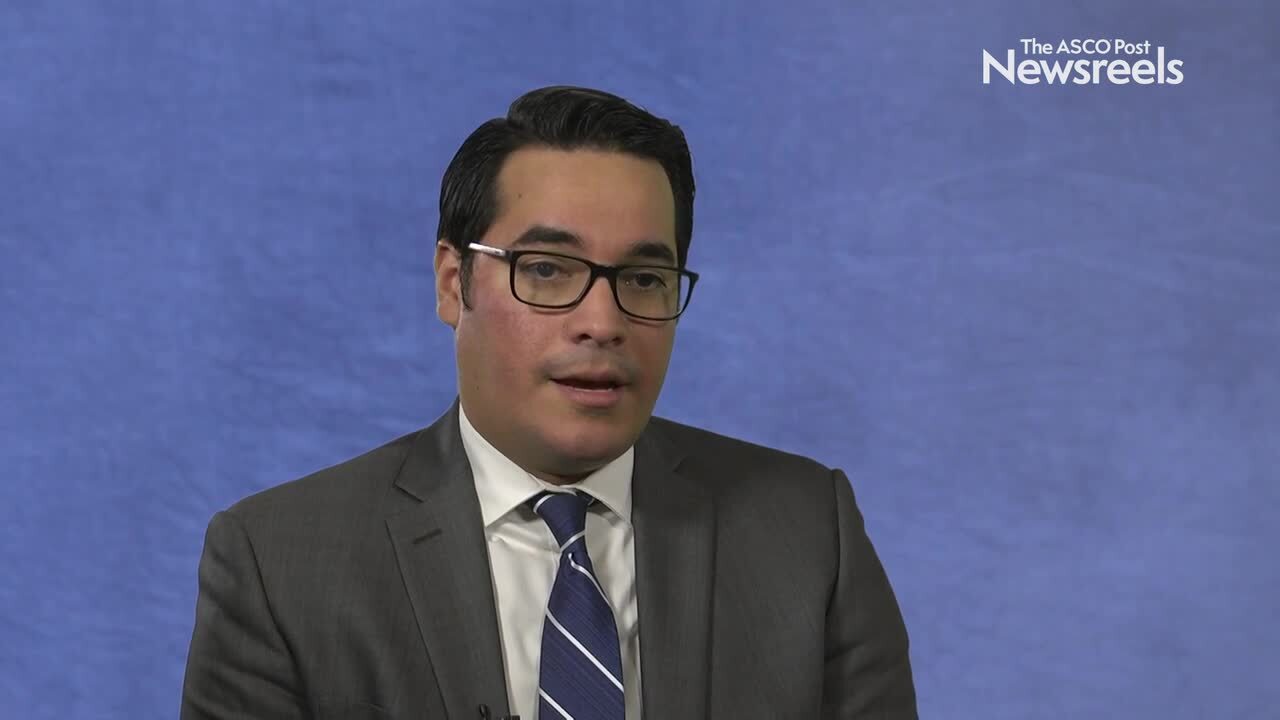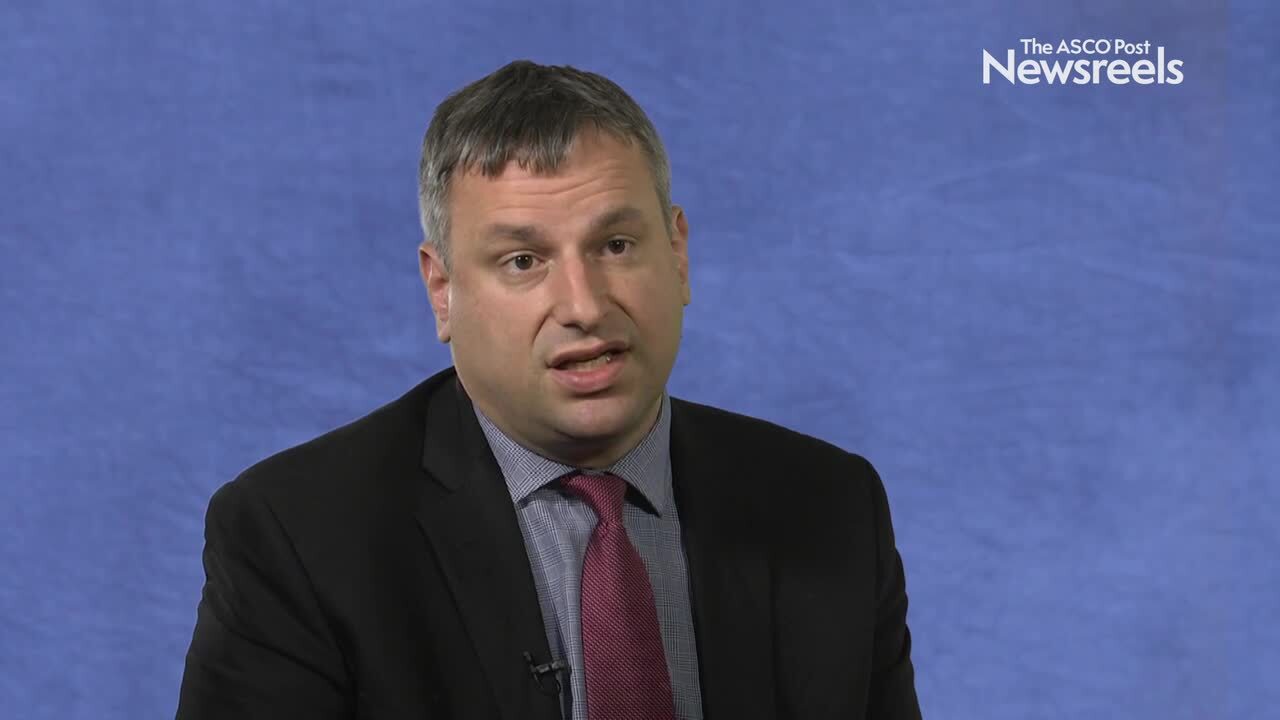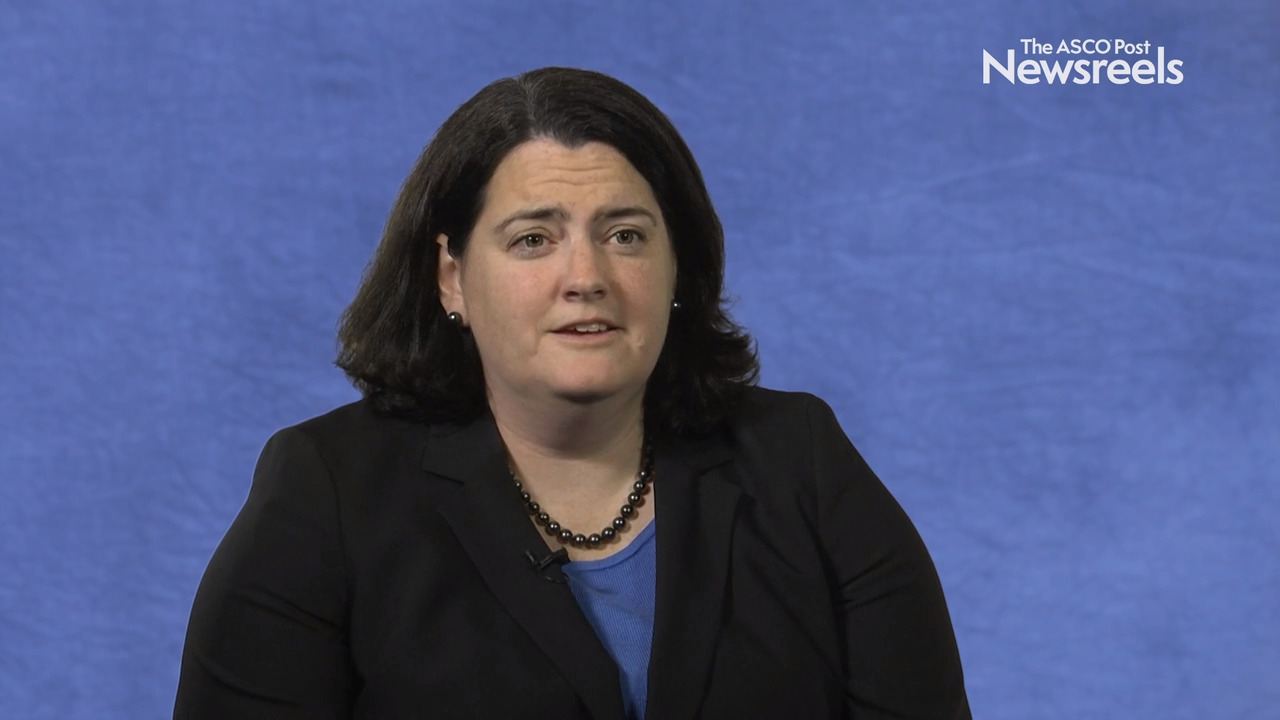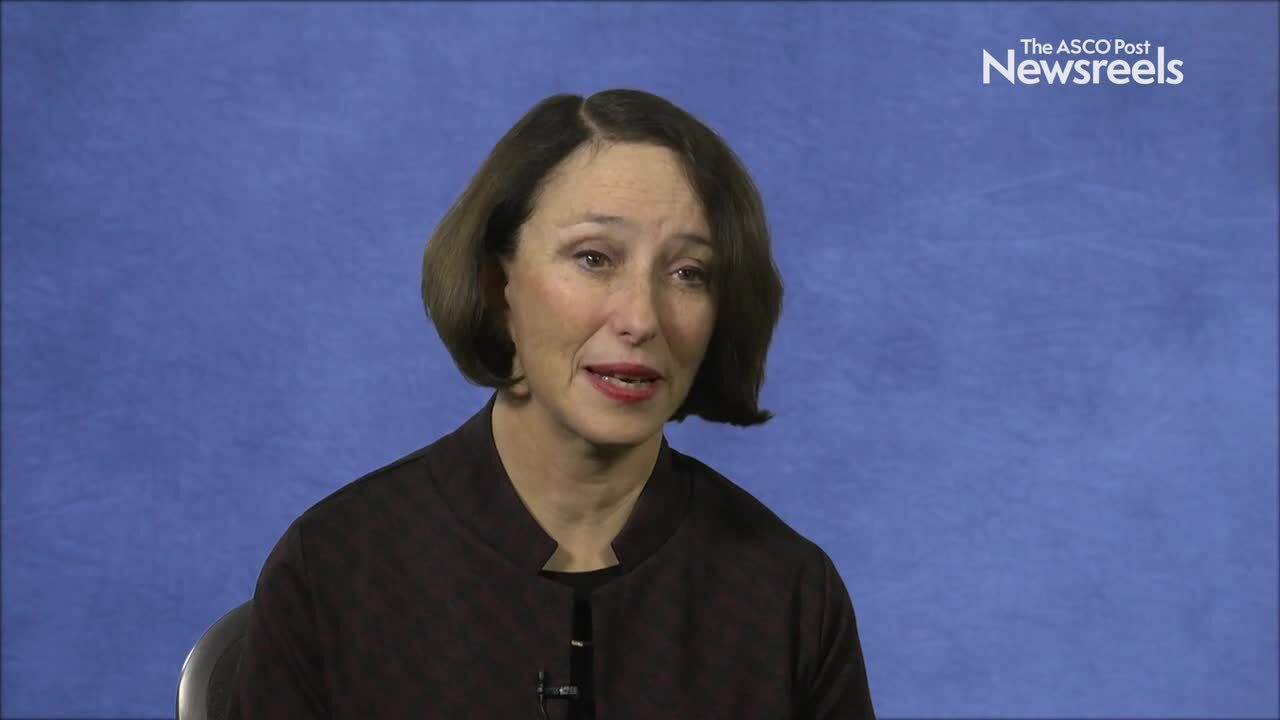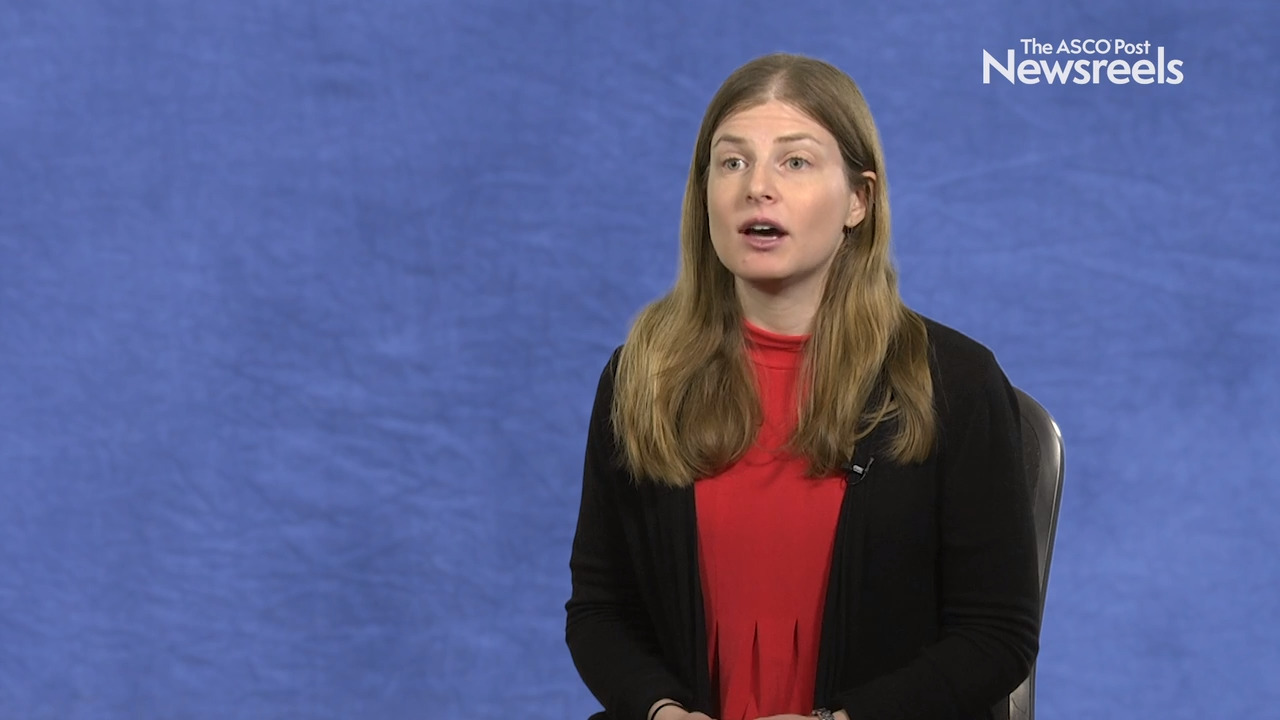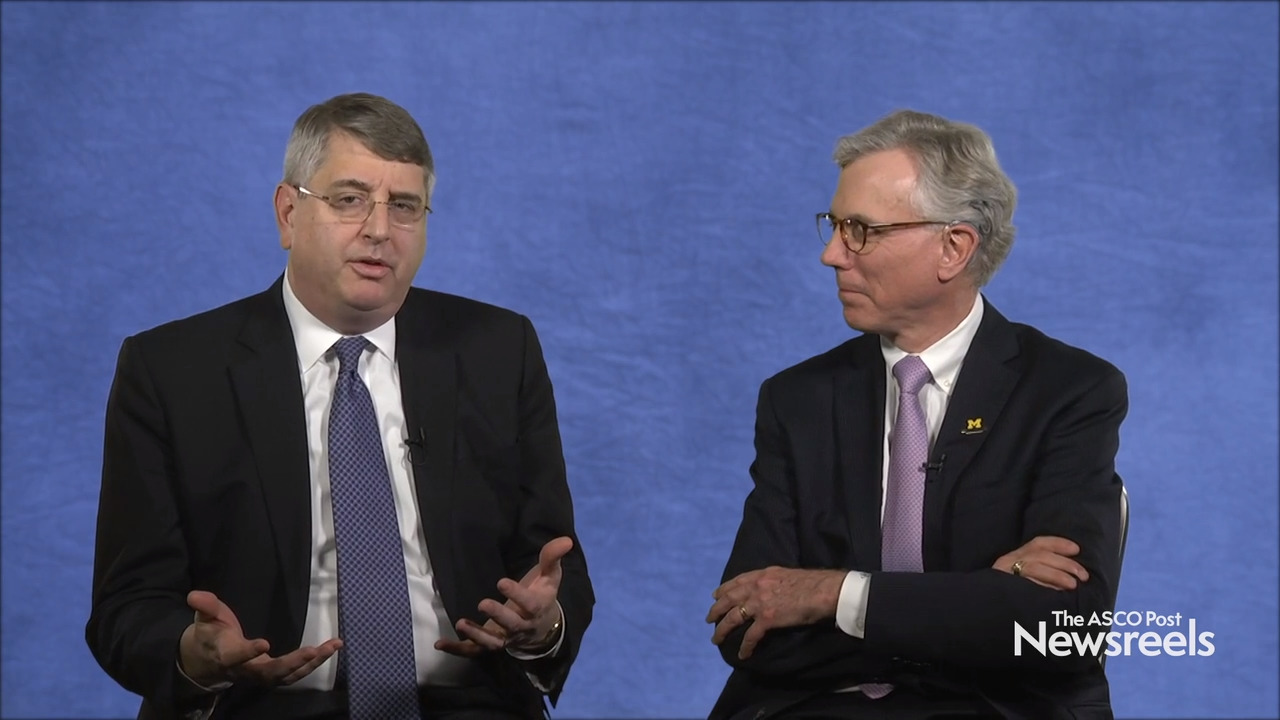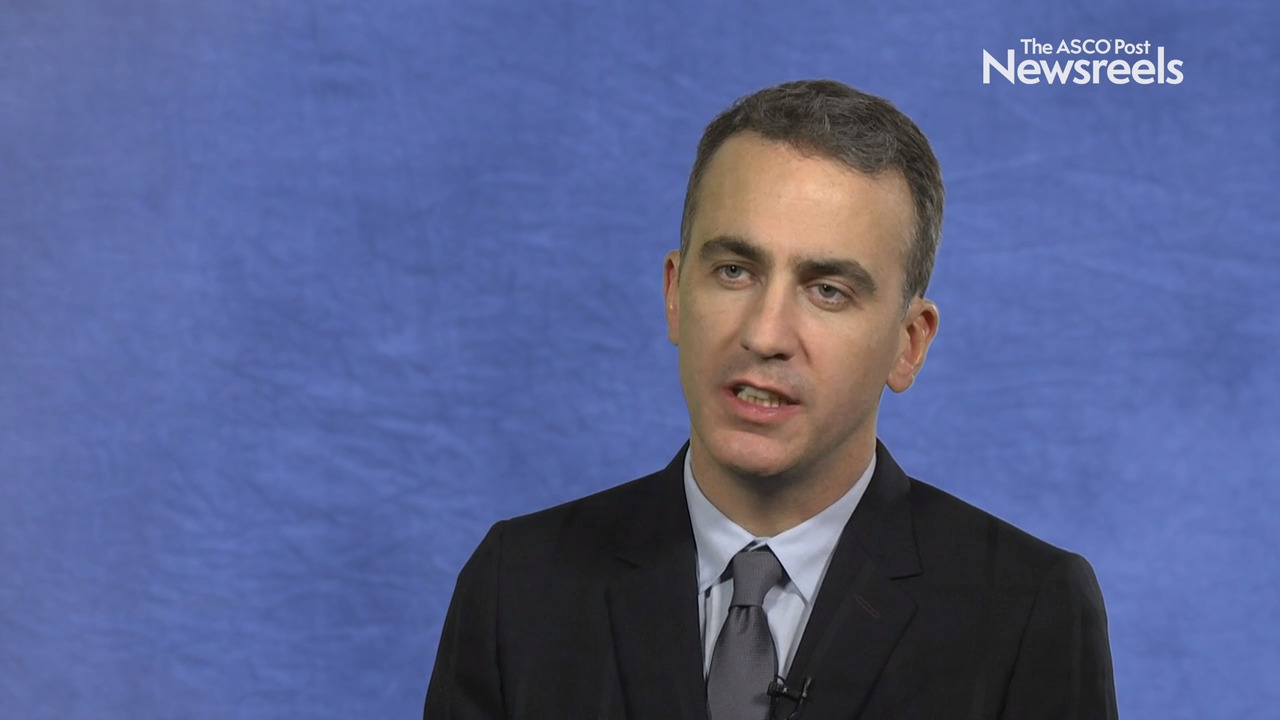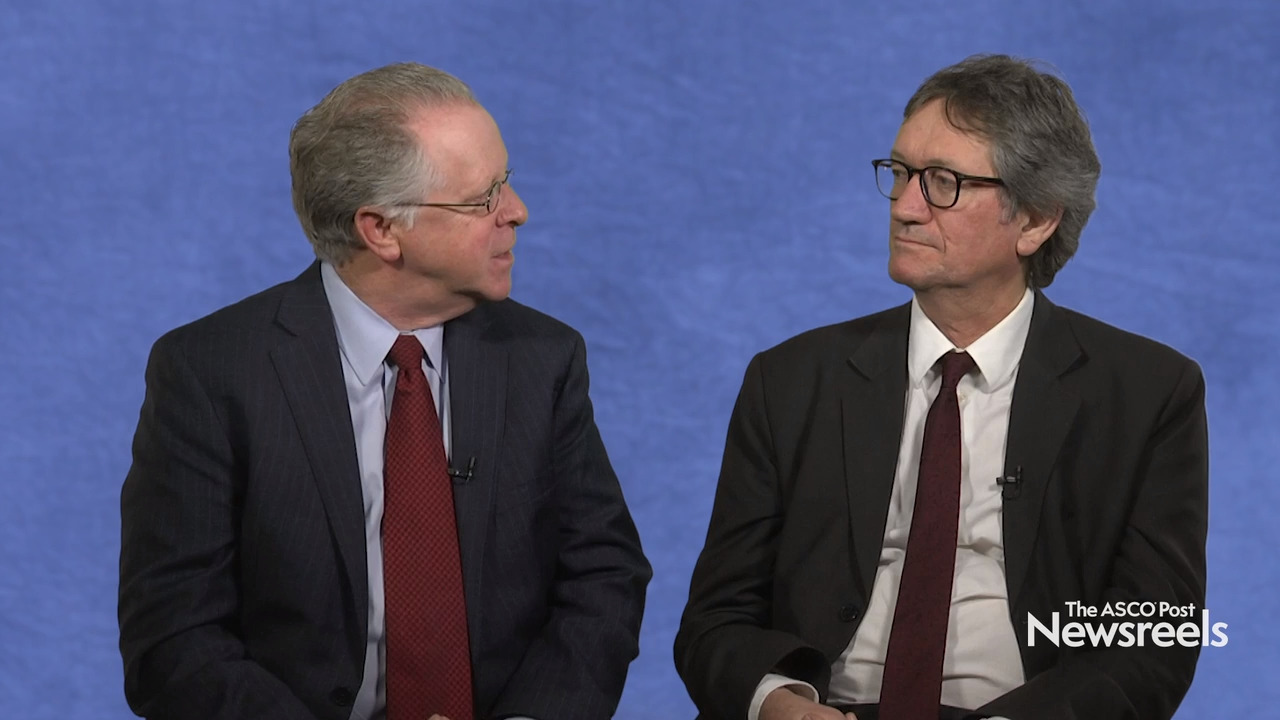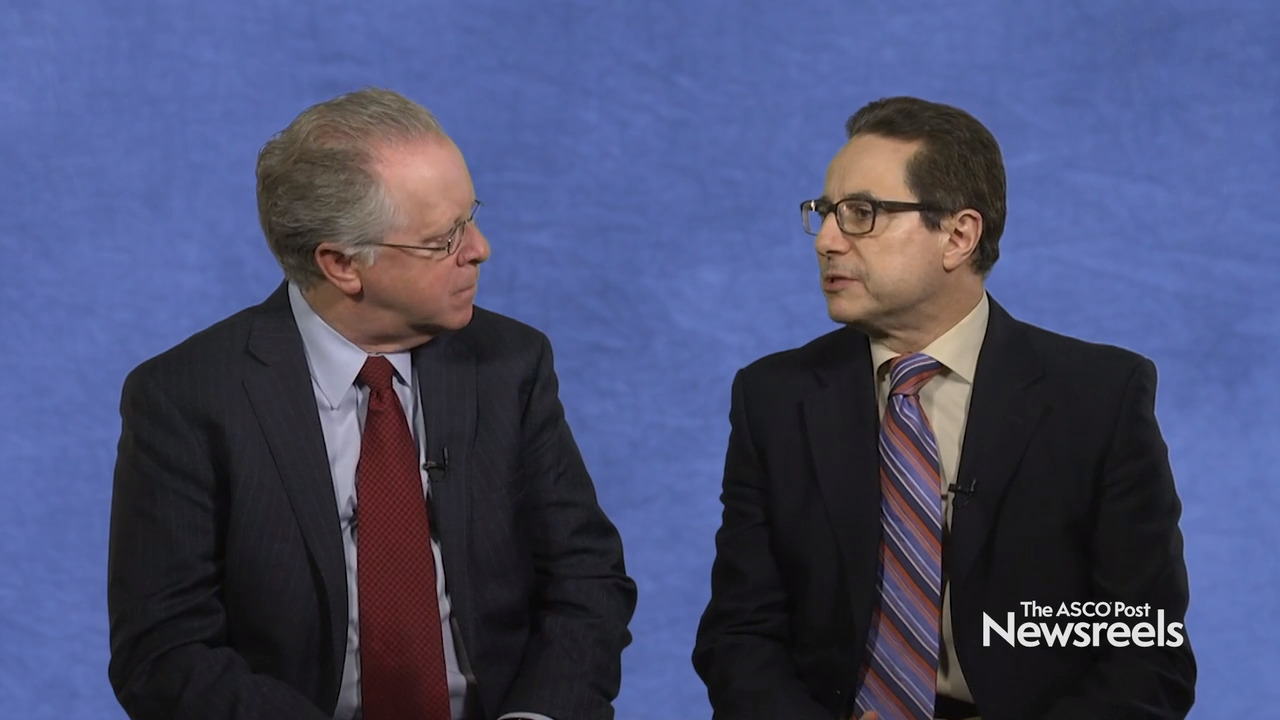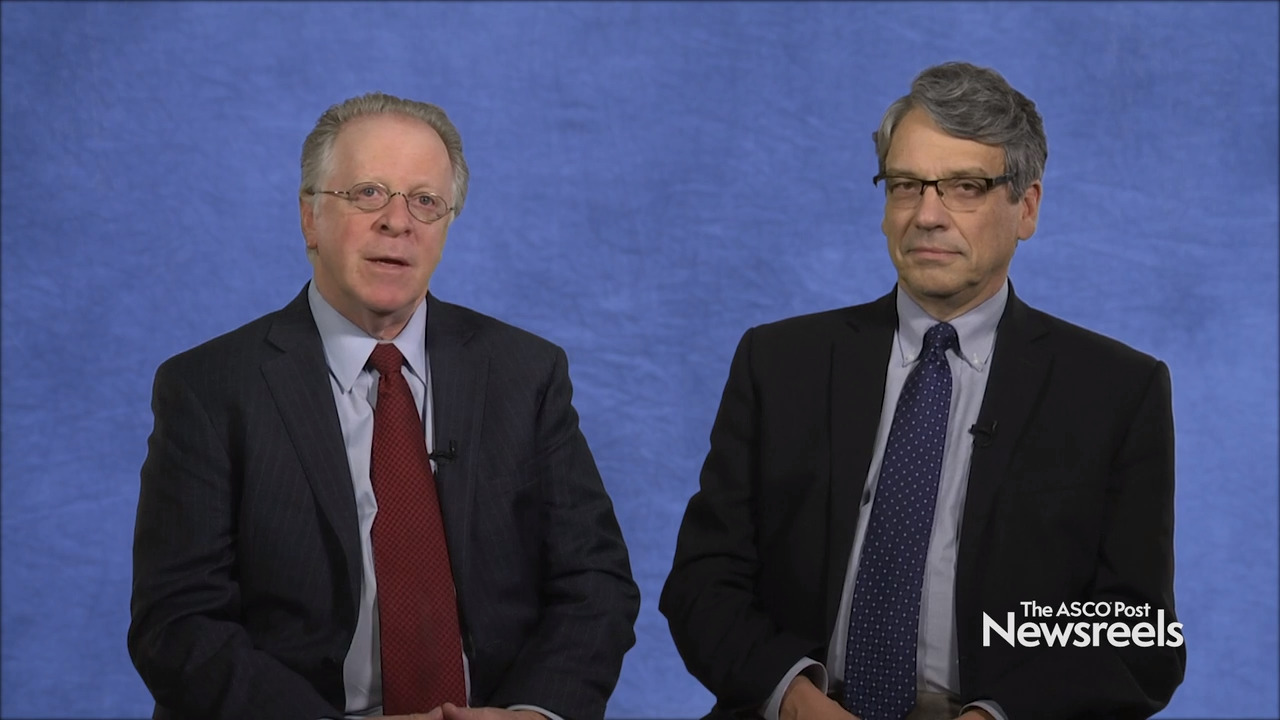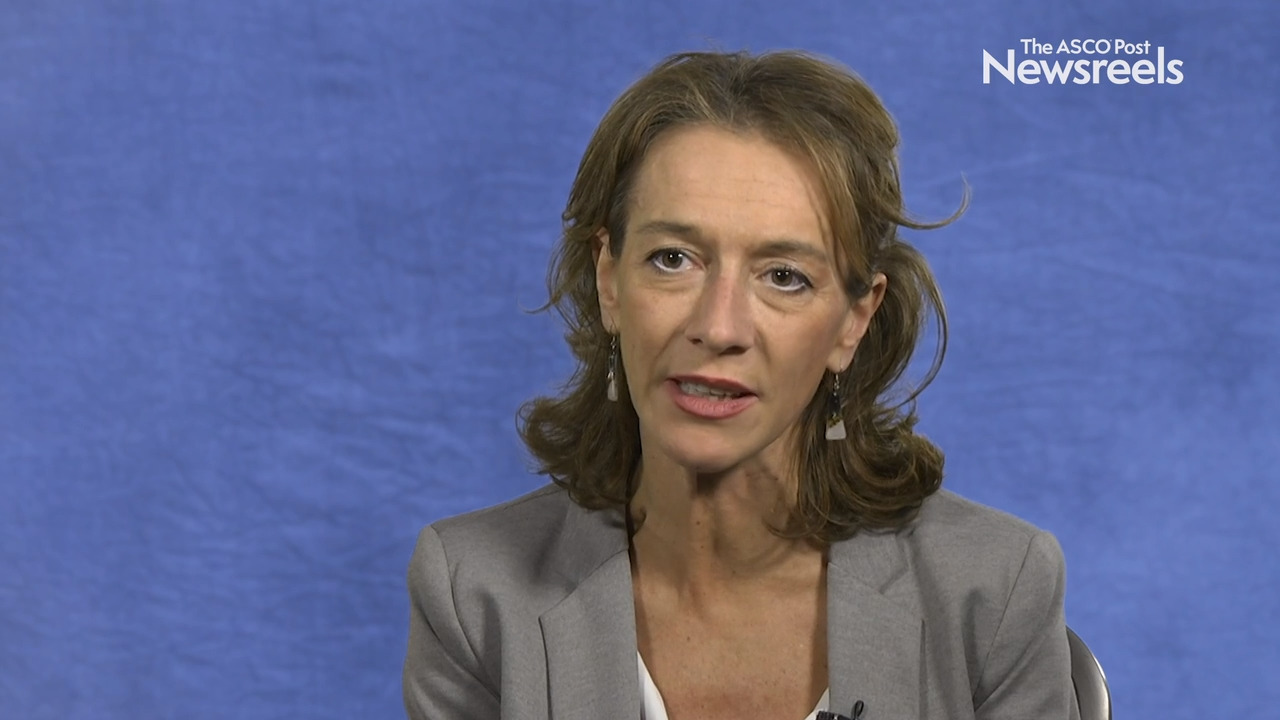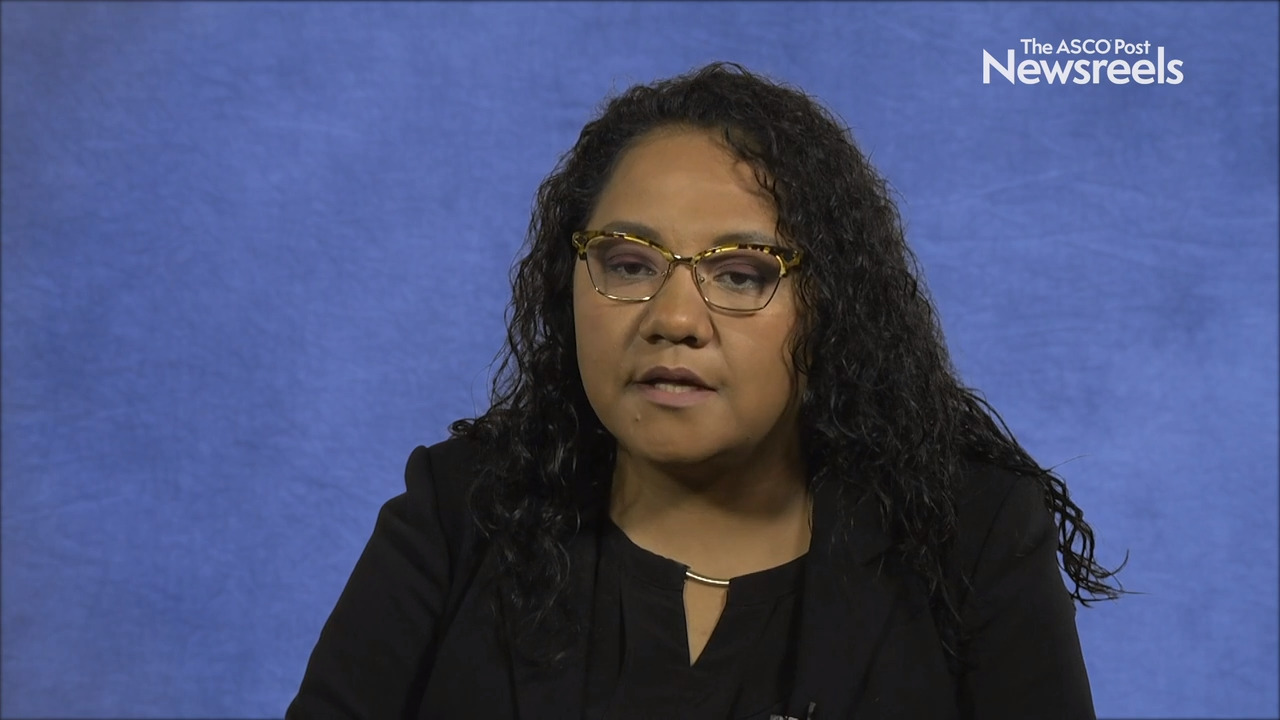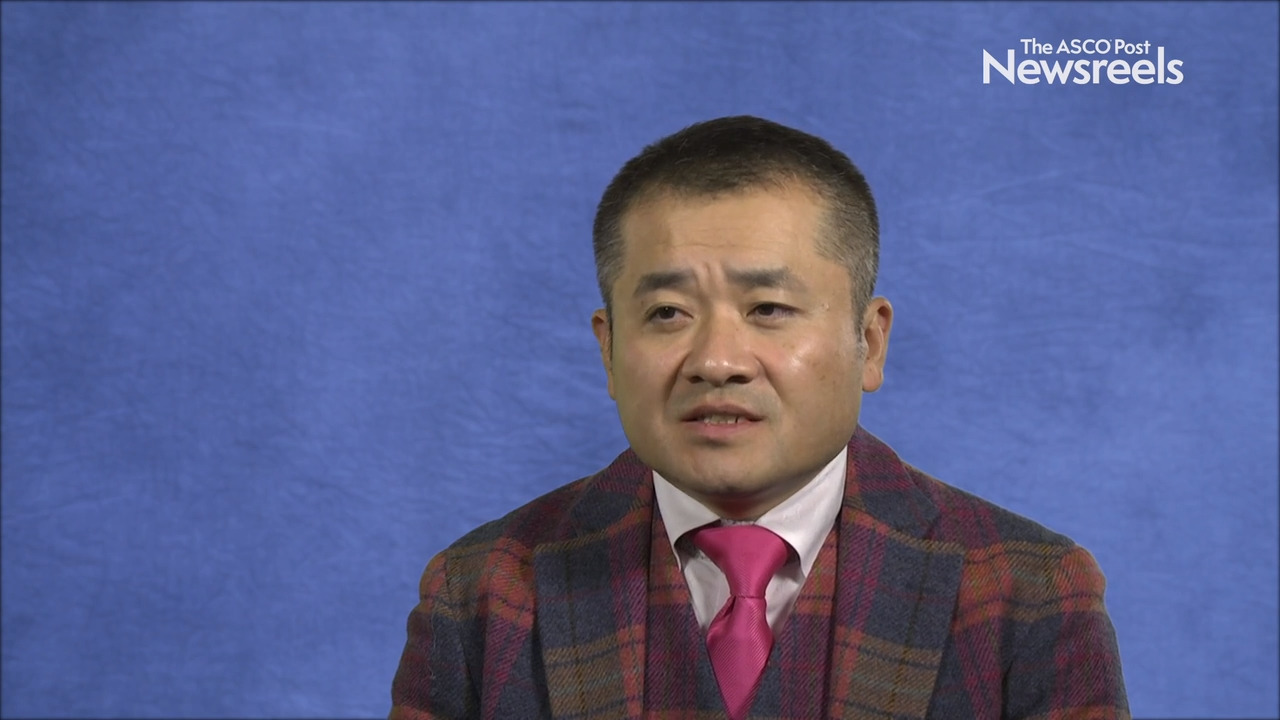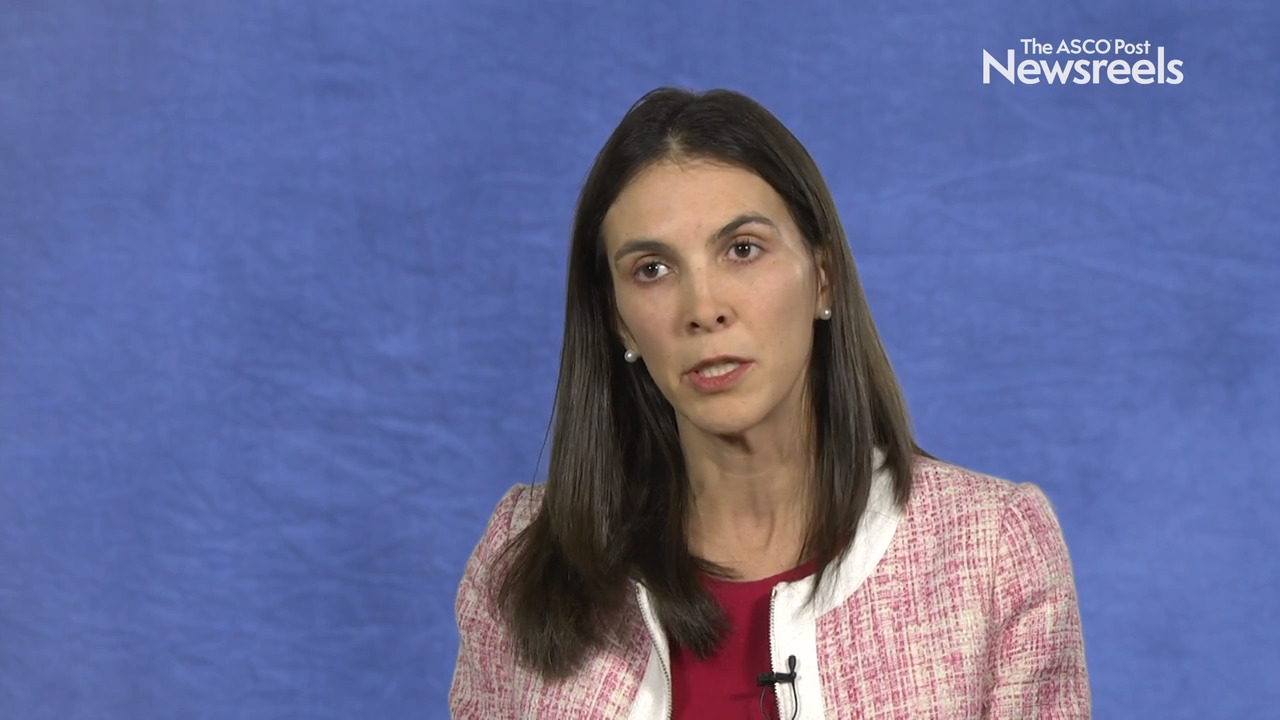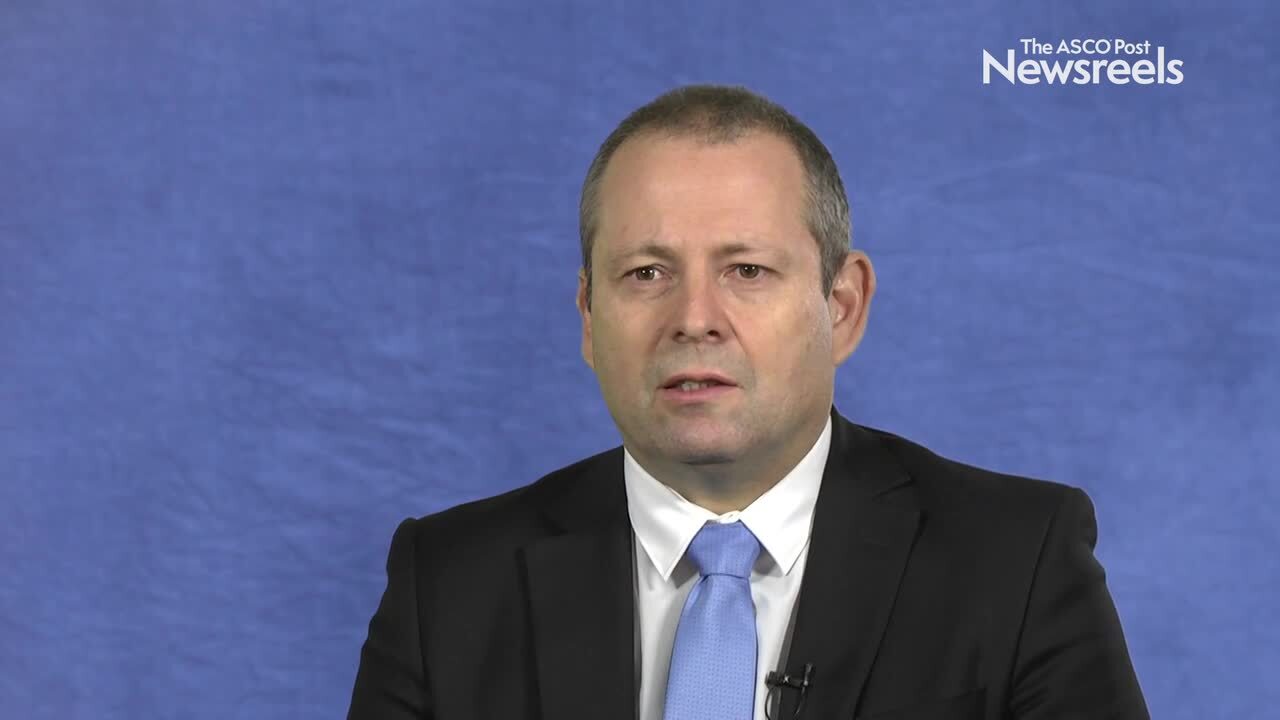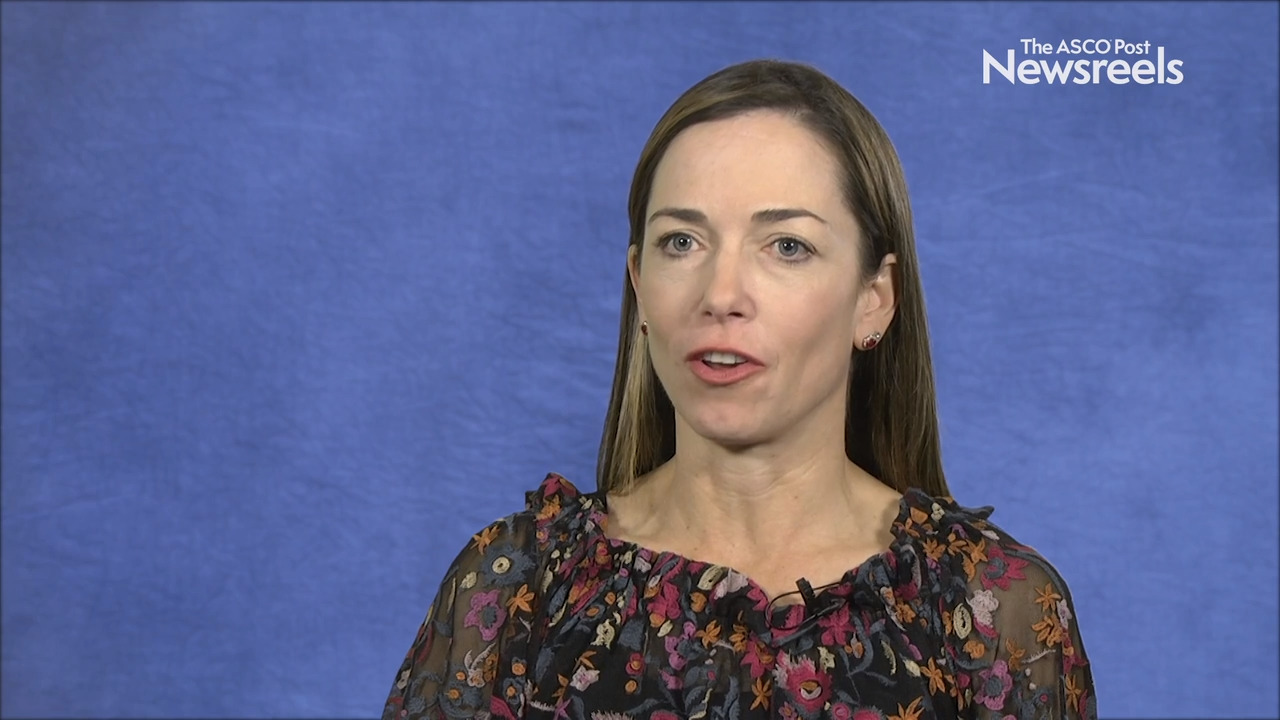2018 San Antonio Breast Cancer Symposium
Neoadjuvant Palbociclib Plus Letrozole Reduces Ki67 Levels
In the neoadjuvant setting, adding palbociclib to letrozole significantly enhanced the suppression of malignant cell proliferation, as measured by Ki67 levels, in patients with primary estrogen recep...
Long-Term Study Finds Axillary Radiotherapy Safe and Effective After Positive Sentinel Node Biopsy
Following identification of a positive sentinel lymph node, surgical axillary lymph node dissection and axillary radiation therapy provide comparable locoregional control and survival, according to a ...
More Data Show Small Benefit From Extended Endocrine Therapy
Two studies presented at the 2018 San Antonio Breast Cancer Symposium validated a small benefit of extending adjuvant aromatase inhibitor therapy beyond thestandard 5 years for postmenopausal women w...
Small Differences Found in Breast Cancer Recurrence With Partial-Breast vs Whole-Breast Irradiation
Partial-breast irradiation delivered over 5 to 10 days did not meet noninferiority criteria compared with whole-breast irradiation given over 5 to 7 weeks, according to 10-year results of the large NR...
Selected Abstracts From the San Antonio Breast Cancer Symposium
Each year, The ASCO Post asks Jame Abraham, MD, FACP, Director of the Breast Oncology Program at Taussig Cancer Institute and Professor of Medicine at the Cleveland Clinic Lerner College of Medicine,...
Genomic Classifier for Luminal Androgen Receptor Triple-Negative Breast Cancer
TRIPLE-NEGATIVE breast cancer is a heterogeneous disease that comprises several subtypes, which may respond differently to therapy. Breast cancer researchers at the Mayo Clinic are developing a novel ...
Preventing Locoregional Recurrence of Breast Cancer Should Not Deter Efforts to Decelerate Therapy
“SURGEONS AND radiation oncologists are obsessed with locoregional recurrence of breast cancer,” Monica Morrow, MD, FASCO, remarked at the 2018 Lynn Sage Breast Cancer Symposium, Chicago. Working to ...
Expert Point of View: C. Kent Osborne, MD
COMMENTING ON the ACCRU study SC-1603, press conference moderator C. Kent Osborne, MD, Director of the Dan L Duncan Comprehensive Cancer Center at Baylor College of Medicine in Houston and Co-Directo...
Oxybutynin: A Novel Option for Managing Hot Flashes?
OXYBUTYNIN, AN ANTICHOLINERGIC drug approved for the treatment of overactive bladder, reduced the frequency and intensity of hot flashes in women who were suffering frequent hot flashes, including bre...
Expert Point of View: Carlos L. Arteaga, MD
PRESS CONFERENCE moderator Carlos L. Arteaga, MD, Director, Harold C. Simmons Comprehensive Cancer Center, The University of Texas Southwestern Medical Center, Dallas, said that oncologists typically...
Expert Point of View: Virginia G. Kaklamani, MD; Monica Morrow, MD; and John Cole, MD
AT THE SAN ANTONIO Breast Cancer Symposium, several breast cancer experts interviewed by The ASCO Post noted that the approved dose of tamoxifen was arbitrarily set, and the optimal dose is actually u...
Low-Dose Tamoxifen Halves Breast Cancer Risk in Women With Preinvasive Breast Lesions
A VERY LOW DOSE of tamoxifen—5 mg/d, given for 3 years rather than 5 years—halved the risk of breast cancer recurrence or new lesions over placebo in women with breast intraepithelial neoplasia, witho...
Association Between Pathologic Complete Response After Neoadjuvant Chemotherapy and Breast Cancer Outcomes
A large comprehensive patient-level meta-analysis showed that achieving pathologic complete response after neoadjuvant chemotherapy correlates with significantly improved event-free survival and overa...
KATHERINE Trial: Adjuvant T-DM1 Reduces Invasive Disease Risk by 50% vs Trastuzumab in HER2-Positive Early Breast Cancer
In patients with HER2-positive early breast cancer and residual disease after neoadjuvant chemotherapy, adjuvant treatment with trastuzumab emtansine (T-DM1; Kadcyla) reduced the risk of invasive dise...
Hope S. Rugo, MD, on Metastatic Breast Cancer: Treatment for Pretreated Hormone Receptor–Positive Disease
Hope S. Rugo, MD, of the University of California, San Francisco, discusses how treatment with a lower dose of palbociclib (100 mg vs 125 mg) in combination with fulvestrant or tamoxifen is associated...
Shanu Modi, MD, on Low HER2-Expressing Breast Cancer: Updated Trial Findings
Shanu Modi, MD, of Memorial Sloan Kettering Cancer Center, discusses study findings from a large phase I study on trastuzumab deruxtecan in patients with low HER2-expressing breast cancer (Abstract P6...
Hope S. Rugo, MD, on Immunotherapy for Breast Cancer: Expert Perspective
Hope S. Rugo, MD, of the University of California, San Francisco, summarizes a spotlight session she chaired, which included discussion of new immunotherapy drug combinations, predictive factors, and ...
Monica Morrow, MD, on View From the Trenches: What Will You do on Monday Morning?
Monica Morrow, MD, of Memorial Sloan Kettering Cancer Center reviews lessons learned from top abstracts, including how to tailor the extent of local therapy to minimize morbidity, the diminishing role...
Shom Goel, MD, PhD, on Breast Cancer: Impact of CDK4/6 Inhibitors on Immunity
Shom Goel, MD, PhD, of the Dana-Farber Cancer Institute, discusses preclinical data that suggest CDK4/6 inhibitors not only stop the growth of breast cancer cells, but also enhance antitumor immunity,...
Roisin M. Connolly, MD, on Breast Cancer Treatment Advances in 2018: Expert Perspective
Roisin M. Connolly, MD, of the Sidney Kimmel Comprehensive Cancer Center at Johns Hopkins, discusses clinical trials during the past year on studies on CDK and PI3K inhibitors in estrogen receptor–pos...
Reshma Jagsi, MD, DPhil, and Rachel A. Freedman, MD, MPH, on Over- and Undertreatment: Getting It Right
Reshma Jagsi, MD, DPhil, of the University of Michigan, and Rachel A. Freedman, MD, MPH, of Dana-Farber Cancer Institute, discuss the twin challenges of overtreating people with cancer and the missed ...
Kathy S. Albain, MD, on Breast Cancer, Ethnicity, and Clinical Outcomes: Results From the TAILORx Trial
Kathy S. Albain, MD, of Loyola University Stritch School of Medicine, discusses study findings on race, ethnicity, and patient outcomes in hormone receptor–positive, HER2-negative, node-negative breas...
Allison Magnuson, DO, on Older Patients With Breast Cancer: A New Tool to Help Guide Treatment Decisions
Allison Magnuson, DO, of the University of Rochester Strong Memorial Hospital, discusses the development of a chemotherapy toxicity risk score that is associated with dose reduction as well as reduced...
Roberto A. Leon-Ferre, MD, on Decreasing Hot Flashes: Results From an ACCRU Trial
Roberto A. Leon-Ferre, MD, of the Mayo Clinic, discusses study findings on the effectiveness of oxybutynin in decreasing the frequency and severity of hot flashes (Abstract GS6-01).
Dejan Juric, MD, on Advanced Breast Cancer: Results From the SOLAR-1 Trial
Dejan Juric, MD, of Massachusetts General Hospital, discusses phase III study findings on liquid biopsy–based assessment of PIK3CA mutational status and the combination of the selective PI3K-alpha inh...
Laura S. Dominici, MD, on Young Women With Breast Cancer: Local Therapy and Quality of Life
Laura S. Dominici, MD, of the Dana-Farber Cancer Institute, discusses the lower quality-of-life scores seen after unilateral or bilateral mastectomy compared with breast-conserving surgery in women yo...
Judy E. Garber, MD, on Cancer Genetics: Updates for Breast Cancer Care
Judy E. Garber, MD, of the Dana-Farber Cancer Institute, summarizes a special session she moderated, which included discussion of polygenic risk scores, genetic testing in diverse populations, and wha...
Shoshana M. Rosenberg, ScD, on Quality of Life and the Impact of Breast Cancer Surgery
Shoshana M. Rosenberg, ScD, of Dana-Farber Cancer Institute, discusses her study findings on the lower quality of life associated with mastectomy, and the need for intervention and timely referrals to...
Harold J. Burstein, MD, PhD, and Daniel F. Hayes, MD, on Breast Cancer With Positive Lymph Nodes: Treatment Controversy
Harold J. Burstein, MD, PhD, of the Dana-Farber Cancer Institute, and Daniel F. Hayes, MD, of the University of Michigan Rogel Cancer Center debate whether all women with breast cancer and positive ly...
SABCS 2018: Oxybutynin for the Management of Hot Flashes in Women Unable to Receive Hormone Replacement Treatment
Treatment with oxybutynin helped reduce the frequency and intensity of hot flashes for women who could not take hormone replacement therapy, including breast cancer survivors, according to the results...
SABCS 2018: SOLAR-1: Liquid Biopsies in Predicting Benefit of Alpelisib in PIK3CA-Mutant Breast Cancer
Liquid biopsy–based assessment of PIK3CA mutational status served as a better indicator of progression-free survival compared with analysis of tissue biopsy in patients with breast cancer enroll...
SABCS 2018: TAILORx Results Show Association Between Clinical Outcomes in Breast Cancer and Race
An analysis of the association between clinical outcomes and race in participants enrolled in the TAILORx trial found that even with equivalent treatments among women with hormone receptor–posit...
SABCS 2018: Surgical Choice May Impact Long-Term Quality of Life in Young Adults With Breast Cancer
A study by Dominici et al investigated the long-term quality of life outcomes in young breast cancer survivors across three surgical strategies: breast-conserving surgery, unilateral mastectomy, and b...
François-Clément Bidard, MD, PhD, on Metastatic Breast Cancer: Using Circulating Tumor Cells to Direct Treatment
François-Clément Bidard, MD, PhD, of the Institut Curie and the University of Versailles, discusses phase III study findings on the clinical utility of circulating tumor cell count as a tool to choose...
Andrew D. Seidman, MD, and Richard G. Gray, MA, MSc, on Long-Term Aromatase Inhibitor Therapy
Andrew D. Seidman, MD, of Memorial Sloan Kettering Cancer Center, and Richard G. Gray, MA, MSc, of the University of Oxford, discuss a meta-analysis of individual patient data from 12 randomized trial...
Andrew D. Seidman, MD, and Miguel Martín, MD, PhD, on Triple-Negative Breast Cancer: Results From the CIBOMA/GEICAM Trial
Andrew D. Seidman, MD, of Memorial Sloan Kettering Cancer Center, and Miguel Martín, MD, PhD, of the Instituto de Investigacion Sanitaria Gregorio Marañón, discuss phase III study findings on adjuvant...
Andrew D. Seidman, MD, and Charles E. Geyer, MD, on HER2-Positive Breast Cancer: Results From the KATHERINE Trial
Andrew D. Seidman, MD, of Memorial Sloan Kettering Cancer Center, and Charles E. Geyer, MD, of Virginia Commonwealth University, discuss phase III study findings on ado-trastuzumab emtansine vs trastu...
Eva M. Ciruelos, MD, PhD, on HER2-Positive Breast Cancer: Results From the PATRICIA Trial
Eva M. Ciruelos, MD, PhD, of the University Hospital 12 de Octubre and the SOLTI Group, discusses study findings on palbociclib and trastuzumab in postmenopausal patients with HER2-positive metastatic...
Zaida Morante, MD, on Triple-Negative Breast Cancer: Delaying Adjuvant Chemotherapy
Zaida Morante, MD, of the Instituto Nacional de Enfermedades Neoplasicas, discusses retrospective study findings showing the importance of starting adjuvant chemotherapy for people with triple-negativ...
Shoichiro Ohtani, MD, PhD, on Extending Adjuvant Aromatase Inhibitor Therapy: Phase III Trial Results
Shoichiro Ohtani, MD, PhD, of Hiroshima City Hiroshima Citizens Hospital, discusses study findings on extending anastrozole to 10 years, which led to higher rates of disease-free survival and distant ...
Kathryn J. Ruddy, MD, MPH, on Breast Cancer and Quality of Life: Expert Perspective
Kathryn J. Ruddy, MD, MPH, of the Mayo Clinic, summarizes a special spotlight session that included discussion of interventions to improve quality of life and the importance of lifestyle in the preven...
Xavier Pivot, MD, PhD, on Early Breast Cancer: Results From the PHARE Trial
Xavier Pivot, MD, PhD, of the Paul Strauss Cancer Center, discusses final study findings comparing 6 and 12 months of trastuzumab in adjuvant early breast cancer (Abstract GS2-07).
Sara A. Hurvitz, MD, on HER2-Positive Breast Cancer: Novel Treatments and Markers
Sara A. Hurvitz, MD, of the University of California, Los Angeles, discusses the natural history and novel combinations for HER2-positive disease as well as predictive and prognostic markers for this ...
SABCS 2018: Whole-Breast Irradiation vs Accelerated Partial-Breast Irradiation for Preventing Ipsilateral Breast Tumor Recurrence
Data from the NSABP B-39/RTOG 0413 trial indicated that ipsilateral breast tumor recurrence (IBTR) rates 10 years after treatment could not reject the hypothesis that accelerated partial-breast irradi...
SABCS 2018: Low-Dose Tamoxifen in Reducing Recurrence and New Disease for Patients With Breast Intraepithelial Neoplasia
Treatment with a low dose of tamoxifen (5 mg/d), compared with placebo, decreased the risk of disease recurrence and new disease for women who had been treated with surgery following a diagnosis of br...
SABCS 2018: AMAROS Trial: 10-Year Follow-up of Axillary Radiotherapy or Surgery in Early-Stage Breast Cancer
Patients with early-stage breast cancer who had cancer detected in a sentinel lymph node biopsy had comparable 10-year recurrence and survival rates following either axillary radiotherapy or axillary ...
SABCS 2018: Circulating Tumor Cell Count May Help Choose First-Line Treatment for Metastatic Breast Cancer
A phase III study by Bidard et al investigated whether circulating tumor cells could help physicians choose between hormone therapy or chemotherapy as front-line therapy for patients with estrogen rec...
SABCS 2018: Meta-analysis of Pathologic Complete Response and Outcomes in Breast Cancer
Pathologic complete response after neoadjuvant chemotherapy was associated with a significantly lower recurrence risk and higher overall survival in patients with breast cancer, and pathologic complet...
SABCS 2018: Delayed Initiation of Adjuvant Chemotherapy Associated With Worse Outcomes in Patients With Triple-Negative Breast Cancer
A retrospective study evaluating the influence of time to chemotherapy on patients with triple-negative disease and its impact on survival outcome has found that patients who delayed adjuvant chemothe...
SABCS 2018: Does Adjuvant Capecitabine Improve Outcomes in Early-Stage Triple-Negative Breast Cancer?
Treating patients with early-stage triple-negative breast cancer with capecitabine after surgery and standard chemotherapy did not significantly improve disease-free or overall survival compared with ...
